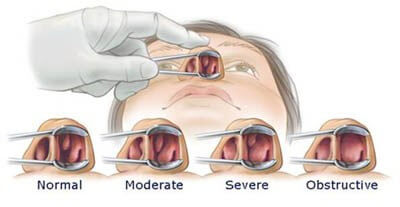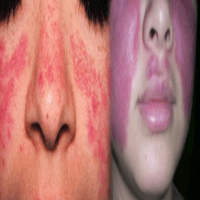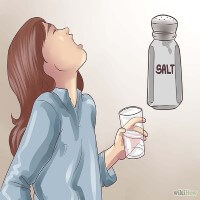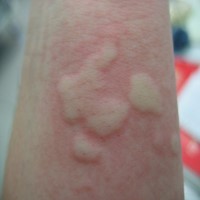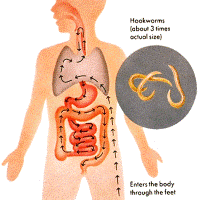Nasal Polyps
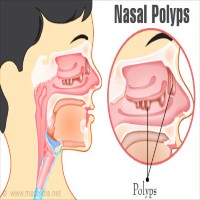
Nasal polyps are the growth of soft tissues on the lining of the nasal passage or sinuses. They are painless and are formed as a result of chronic inflammation of the lining. Small polyps do not cause any symptoms but the larger ones block the nasal passages and cause breathing difficulty and frequent infections. They are associated with inflammation of the lining of nasal passages and sinuses that lasts more than 12 weeks (chronic rhino-sinusitis, also known as chronic sinusitis).
However, it is possible to have chronic sinusitis without nasal polyps. Nasal polyps themselves are soft and lack sensation, so small ones do cause difficulty to get noticed. The 2 major types of nasal polyps are antrochoanal and ethmoidal.
Ayurvedic Description Of Nasal Polyps :
In Ayurveda, nasal polyps are referred to as Kapha-Rakta granthi. The increased Kapha dosha accumulates in the wall of blood vessels and surrounding muscular tissues and gives rise to swelling known as Kapha-Rakta granthi or nasal polyp.
Signs & Symptoms
- Breathing difficulty
- Running nose
- Persistent stuffiness
- Decreased or absent sense of smell
- Snoring
- Itching around eyes and foreign body sensation
Causes and Risk Factors
1. Allergy
People with allergies to aspirin and other non-steroidal anti-inflammatory drugs are more likely to develop polyps.
2. Asthma
Significant numbers of nasal polyps cases are associated with non-allergic adult asthma.
3. Chromium exposure
Exposure to some forms of chromium can cause nasal polyps.
4. Cystic fibrosis
A genetic disorder that affects organs such as the liver, lungs, pancreas, and intestines also have been found in patients with nasal polyps.
5. Medical conditions
Allergic fungal sinusitis, chronic rhino-sinusitis, young’s syndrome, and Nasal mastocytosis.
6. Genetics
Individuals staying at higher risk of developing nasal polyps whose parents have had nasal polyps.
7. Age
Young and middle-aged adults are more at risk of having nasal polyps though they can occur at any age.
Self Care Tips
- Use turmeric milk (1tsp of turmeric mixed in lukewarm milk) twice a day, turmeric has anti-inflammatory properties that help in reducing the size of nasal polyps. Use Lakadong Turmeric powder if possible as it contains a high amount of curcumin
- Ayurvedic Shadbindu oil is very helpful in ENT disorders and is widely used to treat nasal polyps.
- Use a humidifier if the environment around you is hot and humid.
- Regular and thorough hygiene reduces the risk of having a bacterial or viral infection and helps in reducing the inflammation of the sinuses and nasal passages.
- Avoiding irritants, allergens, chemicals, and airborne pollutants may help in reducing the risk of developing polyps.
- To remove the irritants, and allergens, rinse the nasal passages with a nasal lavage or saline spray. This will help in improving the flow of mucus.
Ayurvedic treatment of Nasal Polyps
Most of the patients suffering from nasal polyps opt for endoscopic surgery for it but the disadvantage of nasal polyp surgery is their reoccurrence even after the surgery in nearly over half of the operated cases. The chances of recurrence are seen almost in 50-65% of the cases of nasal polyps.
In Ayurvedic treatment of nasal polyps, the objective is to avoid surgery naturally while reducing the size of polyps with medications and therapies such as Nasya and Kshaar- Karma. These medications inhibit the growth of polyps and check their size. Other than medications, the ancient old and para-surgical procedure mentioned in ‘Sushrut Samhita’ which is known as ‘Kshar-Karma’ is used in the treatment of nasal polyps. These procedures are quick, and cheap and help in the quick reduction of nasal polyps.
The medications used in therapy also combat conditions are sneezing, and headaches which are commonly seen as side conditions with nasal polyps. The oil application with grihadhuma tailam and medicated oil pouring therapy like ‘Nasya’ helps in reducing inflammation, reducing Kapha, and dissolving of nasarsha (nasal polyps).
The dietary regimen also plays a huge role in the condition of Nasal polyp treatment as we need to curtail the consumption of the meals that trigger the growth of nasal polyps. Some examples are curd, mucus-forming substances in the body. These dietary items which should not be consumed are the main reasons for the re-growth of nasal polyps even after the surgery or kshaar-karma. Unfortunately, with the quick use of anti-allergic drops, and decongestant drugs, people have stopped believing in precautions. The timely precautions and Ayurveda medications can save you from surgery, and relapse of polyps very effectively.
Ayurveda has specialized treatment of nasal polyps that helps in reducing the inflammation and swelling of nasal polyps. The application of herbal medicated oils along with Nasya therapy has been found to be very useful in patients of nasal polyps.

